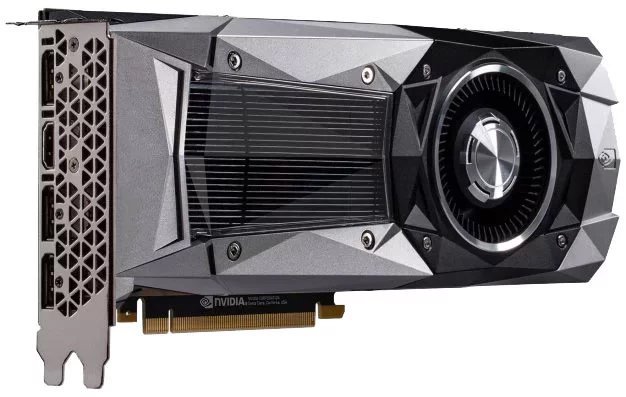Rumored GeForce GTX 1180 Turing Specs Suggest TITAN Xp Crushing Performance For Hundreds Less
Given all the pent-up hype surrounding 12nm Turing GPU architecture, it's understandable that the rumormill is working overtime to try to piece together what NVIDIA has in store. The latest rumors suggest that at the heart of the GeForce GTX 1180 will be a GT104 GPU measuring around 400mm2 with 3584 CUDA cores. For comparison, the GeForce GTX 1080 has 2560 CUDA cores while the GeForce GTX 1080 Ti has 3584 CUDA cores. At the high-end of the Pascal spectrum, the burly TITAN Xp has 3840 CUDA cores.

The GTX 1180 will use a 256-bit GDDR6 memory interface, and will be available in either 8GB or 16GB configurations. SK Hynix is expected to begin mass production of its 16Gbps GDDR6 memory in the June/July timeframe, which could be used in the new gaming cards. In addition, both Micron and Samsung are also well along with sampling their GDDR6 memory, with the former working on parts rated at 12Gbps to 14Gbps (eventually working its way up to 16Gbps), while the latter is expected to produce chips that will operate at up to 18Gbps.
Other specs reportedly on tap for the GTX 1180 include a core clock of around 1.6GHz with the capability to boost to around 1.8GHz. As for overall performance, the GTX 1180 is expected to deliver peak FP32 compute performance of around 13 TFLOPs, which puts it on top of the TITAN Xp (12.1 TFLOPs) and well above the GTX 1080 (8.7 TFLOPs). The key difference is that the GTX 1180 should deliver this performance at a much lower price point than the TITAN Xp, which has an MSRP of $1,200.
All signs are pointing towards a summer launch (likely July) for the GeForce GTX 1180 and its lesser GeForce GTX 1170 sibling. If all the stars and moons are aligned, we can expect the former to be priced at around $700 when it launches.

